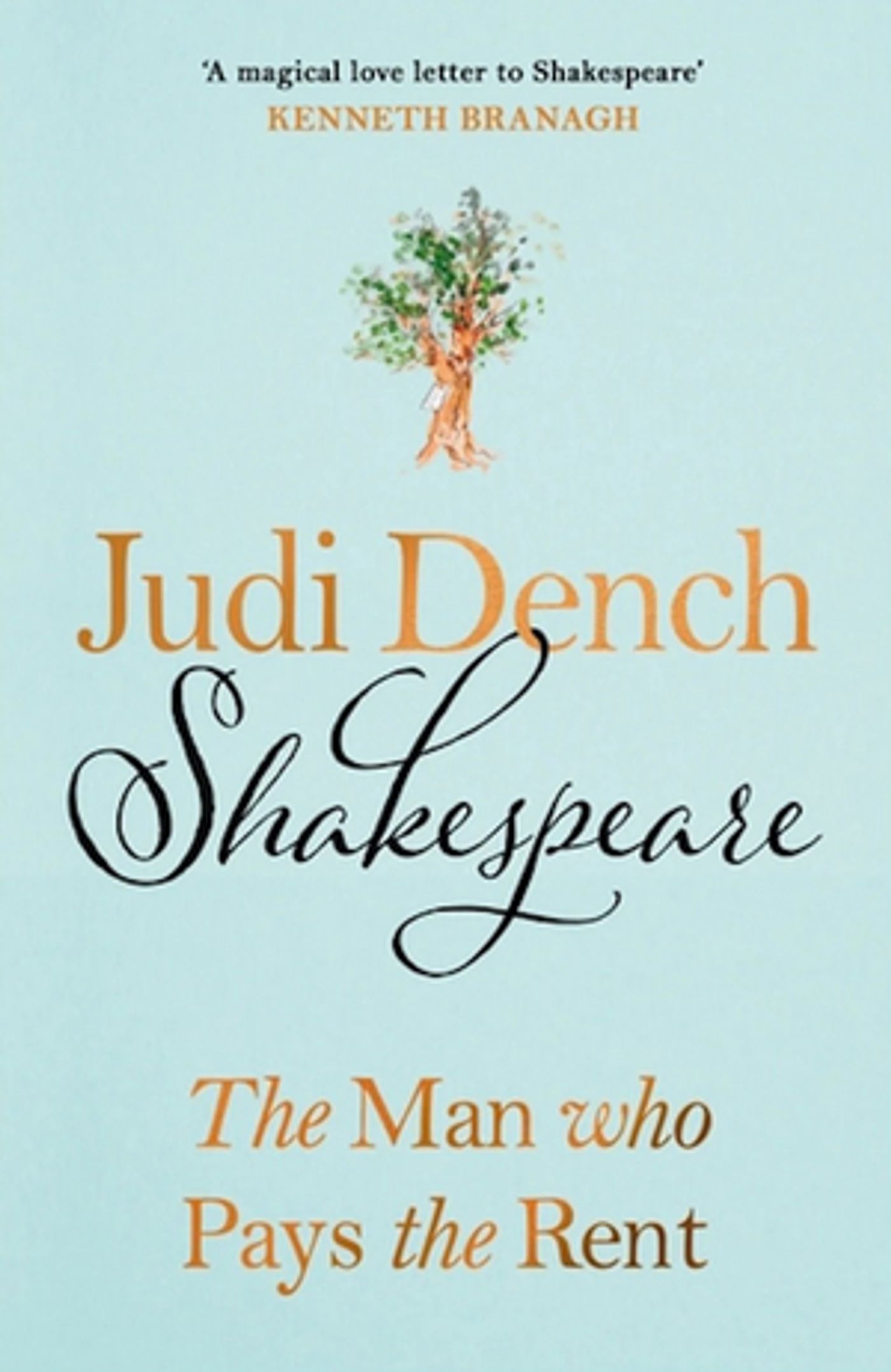Book Review: SHAKESPEARE – THE MAN WHO PAYS THE RENT, Judi Dench
The result of four years of conversations with friend and colleague Brendan O’Hea – this book is as much a memoir as it is an ode to Shakespeare

There are plenty of Shakespeare books on the market already, it’s true – but there aren’t many out there quite like this one.
Originally intended to be a series of conversations between Judi Dench and her friend & colleague Brendan O’Hea for the Globe’s archives, it became apparent that there was more than enough material to build an enlightening and entertaining book. Dench has been in the business for over 60 years now; in that time she has taken on many of the most iconic female roles in theatre, and performed in over half of Shakespeare’s plays on both screen and stage. Not many people are more qualified to take on this subject than her!
Each chapter focuses on a particular play, giving a brief introduction to the plot and raising any points that Dench or O’Hea find interesting, before going into a more detailed discussion on each character that she took on in that play. It’s an incredibly accessible setup, and the conversational structure makes it very engaging – this is a book as suited to Shakespeare novices as it is to certified Shakespeare nerds.
It's important to point out that Dench would continually stress that she didn’t think hers was the definitive take on these plays and characters; she’s entirely correct to point out that “his plays mean different things to different people at different times”, and so there can never be a single correct way to interpret Shakespeare’s work.
The book serves as a terrific guide to acting in general, as well as acting in Shakespeare – whether it’s specific tips like how to play comedy effectively (It’s rhythm, it’s timing, it’s about listening to the audience”) or giving an insight into how the cast and creatives come together (she has always trusted her costume designers: “A good designer’s costumes will never get in the way of the play”). It’s also interesting to read what she would consider work for home, as opposed to work for the rehearsal rooms.
Aside from the odd bit of blue language here and there, it would also be an excellent addition to any English Lit classroom. Shakespeare is meant to be seen rather than read, so Dench’s insights as an actor (rather than those of an academic) are potentially more valuable to anyone studying his plays – especially when you pick up on little nuggets like how many of the female characters have nunhood proposed to them (“The nunneries must have been packed”), and whether Shakespeare was imagining his son Hamnet being resurrected when he brought several infant characters back to life.
It's really fascinating to see how comparably major (in terms of lines and scene time) some of the characters are – for example, you’d expect Lady Macbeth to have more lines than she does, given how much she gets analysed. The fact that it’s female-centric is another bonus; nearly all of Shakespeare’s title character are men, so understandably they are often the focus of attention – but Dench’s insights do well to redress the balance slightly.
As well as all of her thoughts and experiences relating to Shakespeare, there is also ample room for an anecdote or two throughout the book. If you have seen her on stage or screen, there is an unmistakeable glint in her eye – and this likely stems from her apparently “mischievous” personality. Dench has seemingly done it all. Work with snakes? Check. Find one of the snakes hiding in her wig while it was still on her head? Check. She even managed to find a way of moonlighting in Les Misérables whilst playing the Countess of Roussillon in All’s Well That Ends Well in the West End.
These little gems – and so many more – help to make this book an absolutely delightful read. It’s a lovely alternative guide to Shakespeare from someone who knows his work inside out, and an entertaining way of getting to know the national treasure that is Judi Dench. An invaluable addition to every bookshelf.
Shakespeare – The Man Who Pays the Rent (Penguin Books Ltd, £25) is available now
Picture credit: Penguin Books
Reader Reviews
Videos

